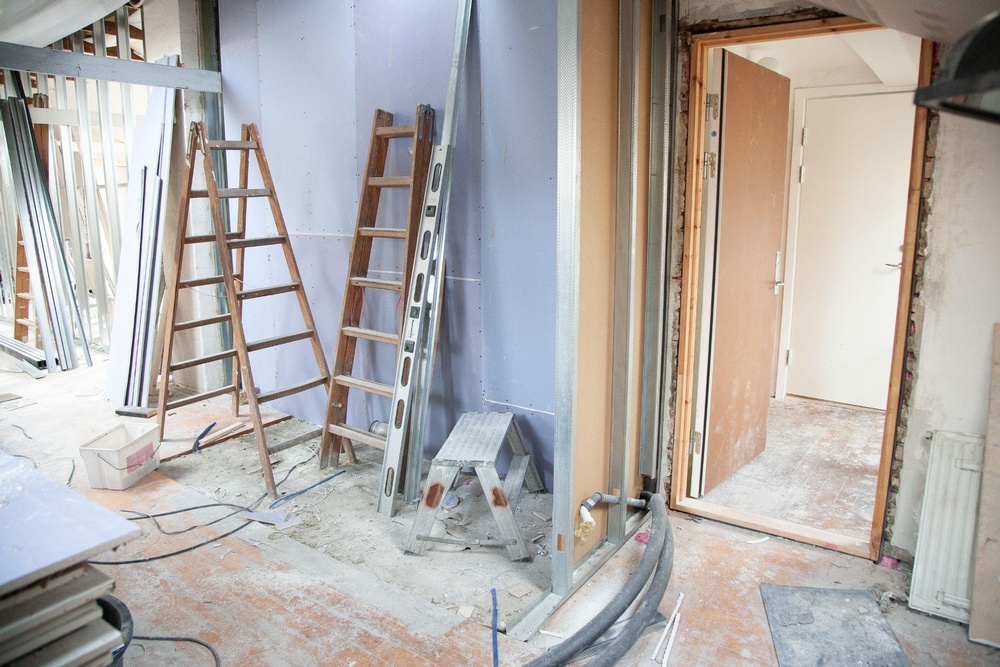4 Tips to Help You Finance Your Next Home Renovation

So you've decided to take the plunge into a home renovation project. Whether you are replacing your bathroom vanity, adding on an entire second story or anything in between, the question of “how am I going to pay for this?” will be at the forefront of your mind. And for good reason! Home renovations are not cheap by any means. The average cost of a renovation in 2021 is between $20,000 and $75,000, depending on the size of your home and the cost of materials and finishes. On the brightside, many of these improvements will add value to your home.
Navigating this journey can be intimidating for first-timers but it doesn’t have to be. There are many great options out there to help you fund your renovation.
Refinance Your Mortgage
Has your credit score improved since you first purchased your home? Has the market changed in your favor? It may be time to refinance. Refinancing a mortgage may seem like a big undertaking, but it is easier than buying a house, and is a great way to get some extra cash based on your home's equity. Depending on the value of your home, you may be able to fund medium to large projects with this money as well. A refininance may take longer than other options on this list (30-45 days) so that is something that you will want to factor into your timeline. Also, refinancing your mortgage is only recommended if you can secure a lower interest rate than before. Otherwise, you will end up paying more for your home in the long term. Overall, a home mortgage refinance is something you should research well beforehand to make sure that it is the most economical option for you.
Use a Credit Card
Credit cards can be a quick and easy way to pay for minor home projects. Depending on your credit score, there are a plethora of options out there for you to choose from. When shopping around for a credit card, consider using an online credit service to help you find the best option for what you need. I recommend finding a card that offers a zero interest introductory period. This way you can pay for your entire project and not have to worry about paying any interest. However, credit cards do come with somewhat of a draw-back. You have to make sure that your balance is paid in full before the introductory period ends or else you will have to pay the entire interest on your purchases. Keep this in mind when choosing a credit to ensure that you are paying the lowest amount for your project.
Take Out a Home Improvement Loan
A home improvement loan is a type of personal loan that is offered by most banks and credit unions. These are a great option for a quick turnaround, with your funds being deposited into your account in as little as a couple of days after your approval. Home improvement loans are most useful for people with a higher credit score, as your interest rate is mostly dependent on that. Some drawbacks would be if you have a credit score that is on the lower end. This will raise your interest rate and cost you more in the long run. Another thing to consider is these types of loans often come with a processing fee that is non refundable. When considering a personal loan for a renovation, plan for a small to medium project. This will allow you to pay less in interest than you would for a larger, more expensive project.
Create a Budget
Now that you have established a way to fund your renovation, it is time to create a budget, and not just for money. Budgeting your time is just as important. It is fairly common (and almost inevitable) that your renovation will go over expected costs, and will take longer than your timeline anticipated, so factor that into your planning. A great rule of thumb when creating your budget is to not spend more than 15% of your home’s overall value on any single room. This will ensure that the amount you are spending and the value you are adding to your home remain proportionate.
Another thing to remember is to not be caught unprepared for additional costs that will inevitably arise. Set aside some money and time in your budget for the unexpected. No one wants to get halfway done with a renovation and realize they ran out of money because they were not holding strict to their budget. The worst thing that can happen from setting money aside is that you have some extra funds left over at the end of the project to spend on some nicer finishes or upgrades that you may not have been able to afford initially.
Renovating your home can be a costly and time consuming commitment. When planning this process, make sure that you are choosing the right type of funding that makes sense for your lifestyle and budget. Also don’t forget to create a budget and a timeline as a roadmap to help you along the way. Good luck and happy renovating!